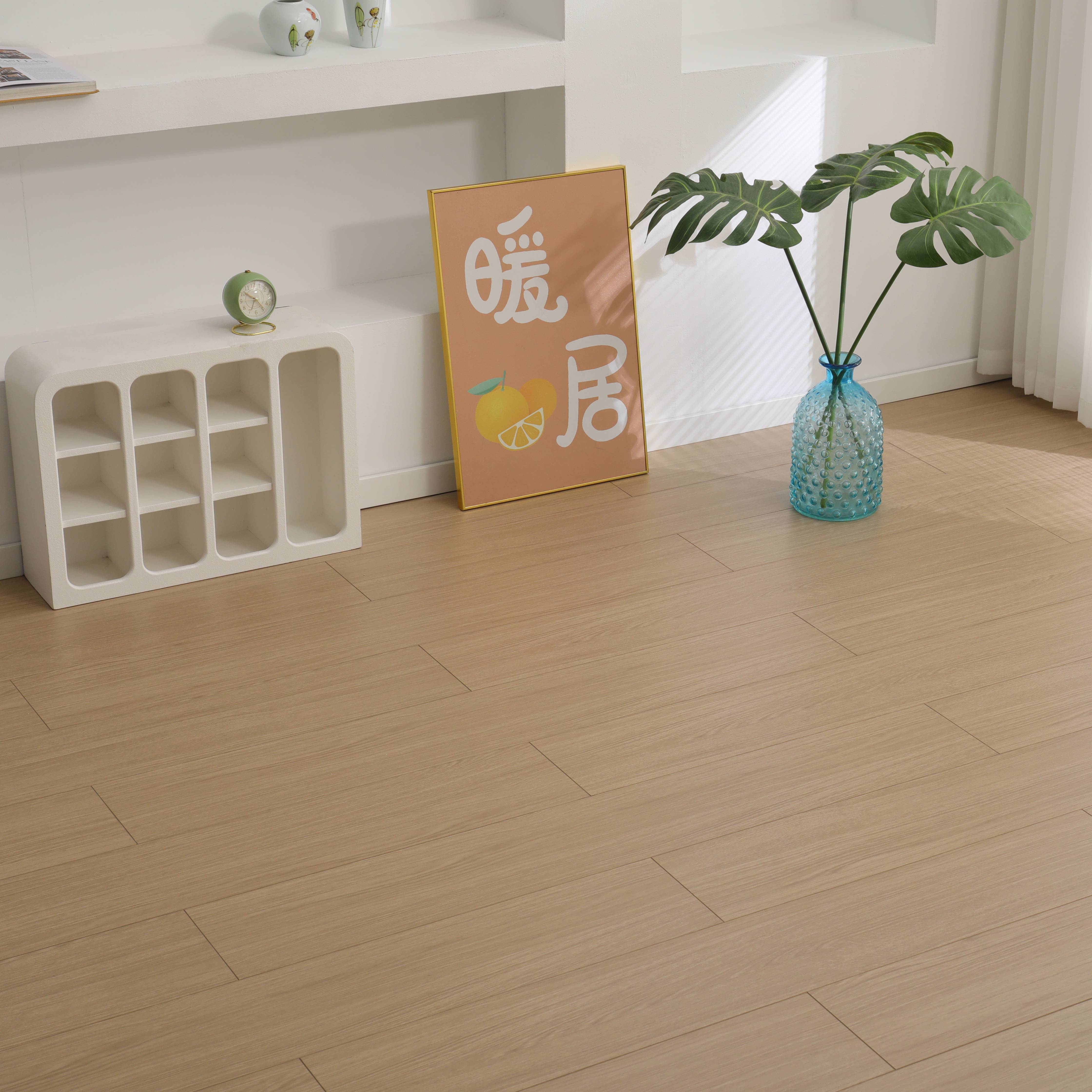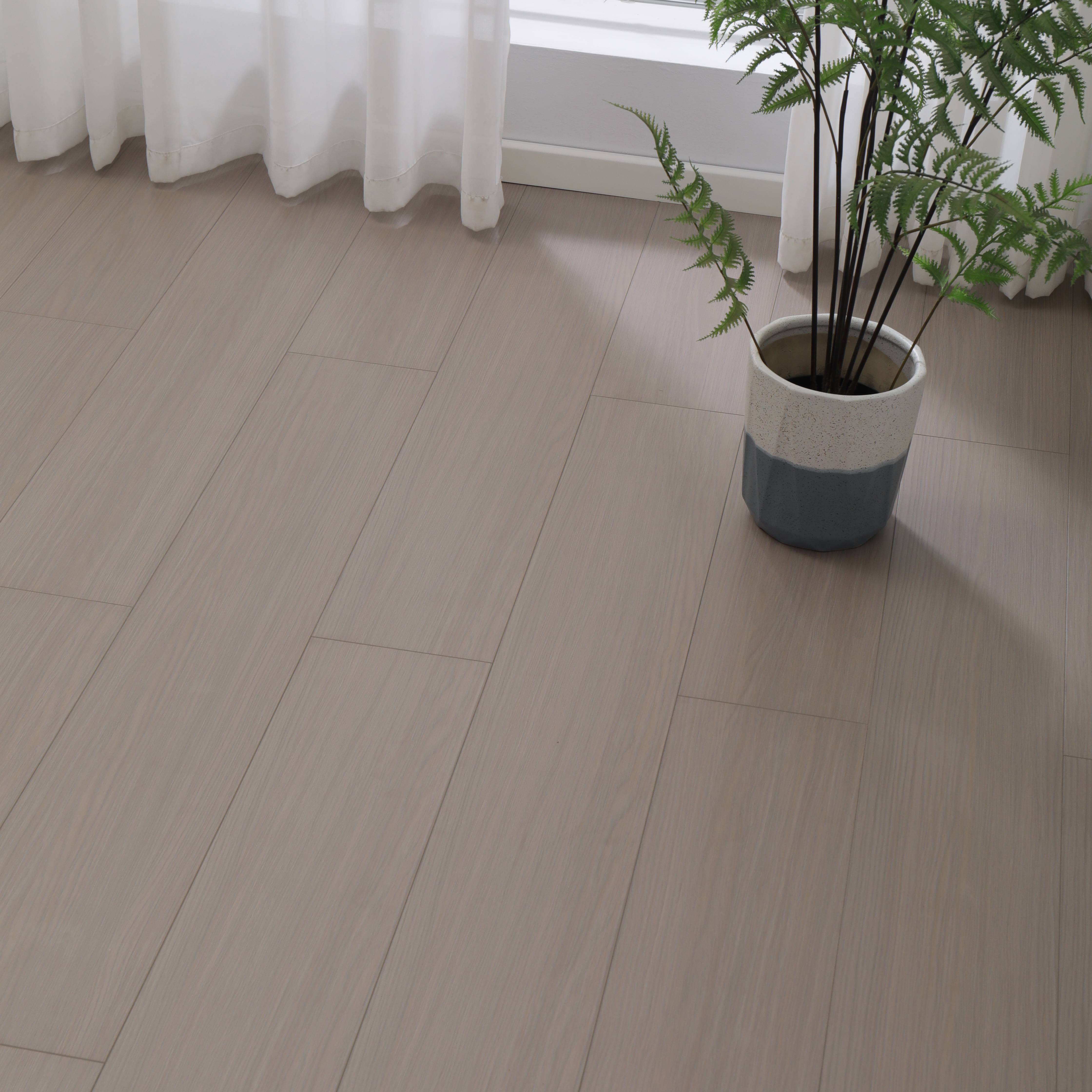Sənaye mühitləri, optimal performans və təhlükəsizlik standartlarını qoruyarkən şiddətli şəraitə dözə biləcək döşəmə həlləri tələb edir. Müasir istehsal müəssisələri, anbarlar və emal plantları çirklənməyə müqavimət göstərən, texniki xidmətin qiymətini azaldan və işçilərin təhlükəsizliyini təmin edən xüsusi döşəmə sistemləri tələb edən unikal çətinliklərlə üzləşirlər. Sənayenin səmərəliliyə, davamlılığa və uzunmüddətli operativ xərclərin idarə edilməsinə önəm verdiyi üçün uyğun döşəmə materiallarının seçilməsi getdikcə daha da vacib hala gəlmişdir.
Müasir sənaye döşəmə texnologiyası müasir istehsal mühitinin mürəkkəb tələblərini həll etmək üçün əhəmiyyətli dərəcədə inkişaf edib. İrəli addım atılmış materiallar mühəndisliyi möhkəmlik, kimyəvi müqavimət və təmir effektivliyini əvvəlki heç bir halda olmayan şəkildə birləşdirən döşəmə sistemlərinin yaradılmasına imkan verib. Bu innovativ həllər ənənəvi sənaye döşəmə yanaşmalarından fərdi bir çevrilişi təmsil edir və operativ səmərəliliyə və iş yerində təhlükəsizlik standartlarına birbaşa təsir edən artırılmış performans xüsusiyyətləri təklif edir.
Sənaye Döşəməsində Antitəkan Texnologiyasını Anlamaq
Antitəkan Səth Texnologiyasının Əsas Prinsipləri
Sənaye döşəmələrində qarşısının alınması texnologiyası, çirkləndiricilərin, tullantıların və bioloji materialların yapışmasını və toplanmasını maneə törədən inkişaf etmiş səth kimyası vasitəsilə işləyir. Bu texnologiya, çirkablar üçün molekulyar bir maneə yaradan xüsusi polimer tərkiblərindən və səth emalından istifadə edir. Əsas mexanizm səth enerjisi xarakteristikalarının dəyişdirilməsini nəzərdə tutur ki, bu da döşəmə səthi ilə potensial çirkləndiricilər arasındakı cəzbetmə qüvvələrini azaldır.
Çirklənməyə qarşı səthlərin effektivliyi diqqətlə hazırlanmış səth topologiyasına və kimyəvi tərkibinə asılıdır. Mikroskopik səth strukturları çirkləndiricilərin yapışa biləcəyi kontakt nöqtələrini minimuma endirmək üçün hazırlanmışdır, xüsusi kimyəvi örtüklər isə çirkləndiricilərə qarşı əlavə müqavimət təmin edir. Bu ikiqat yanaşma neft və yağdan orqanik maddələrə və kimyəvi qalıqlara qədər müxtəlif növ sənaye çirkablarına qarşı kompleks müdafiəni təmin edir.
Zəifləməyə Qarşı Mərtəbə Sistemlərinin Materialşünaslıq Elmi
İrəli materialşünaslıq bir neçə xüsusi material təbəqələrini birləşdirən kompozit döşəmə sistemlərinin inkişafını mümkün etdirmişdir ki, bu da yüksək səviyyəli zəifləməyə qarşı xüsusiyyətlər əldə etməyə imkan yaradır. Bu sistemlər adətən yüksək performanslı polimerləri, keramik hissəcikləri və xüsusi əlavələri özündə birləşdirir və bu maddələr sinerjik şəkildə möhkəm, çirklənməyə qarşı davamlı səthlər yaratmaq üçün işləyir. Material tərkibi zəifləməyə qarşı xüsusiyyətlərlə yanaşı mexaniki möhkəmlik və kimyəvi müqaviməti tarazlaşdırmaq üçün dəqiq hesablanmışdır.
İstehsal prosesi nəzarət olunan polimer kross-linqi, səthin strukturlaşdırılması və çoxtəbəqəli lamination kimi mürəkkəb texnikaları əhatə edir. Bu proseslər zəifləməyə qarşı xüsusiyyətlərin sadəcə səth emalı deyil, material strukturunun bütövü boyu inteqrasiya edildiyindən əmin olur. Bu kompleks yanaşma intensiv sənaye istifadəsi və tez-tez təmizləmə dövrləri altında belə uzunömürlü performans təmin edir.
Çirklənməyə və çirk hissəciklərinə qarşı üstün müqavimət
Kimyəvi çirklənməyə qarşı müqavimət
Sənaye mühitləri tez-tez ənənəvi döşəmə materiallarına qalıcı zərər verə biləcək agressiv kimyəvi maddələrə, neft məhsullarına, həlledicilərə və korroziyaya səbəb olan maddələrə məruz qalır. Bir çirklənməyəqarşı döşəmə bu cür şiddətli kimyəvi maddələrə qarşı xüsusi bariyer xüsusiyyətləri vasitəsilə substrat materialı ilə kimyəvi reaksiyanın qarşısını alaraq yüksək müqavimət göstərir. Bu irəli səviyyə döşəmə sistemlərinin molekulyar strukturu sənaye sahəsində yayılmış konsentrat turşulara, qələvilərə və üzvi həlledicilərə məruz qalındığı halda belə bütövlüyünü saxlamaq üçün hazırlanmışdır.
Kimyəvi təsirədavamlılıq xüsusiyyətləri yalnız sadə bariyerli qorunmadan ibarət olmayıb, zərərli maddələrin döşəmə strukturuna təsir etməsindən əvvəl onları neytrallaşdıran aktiv müqavimət mexanizmlərini də əhatə edir. Çirklənməyə qarşı bu qabaqcıl yanaşma sənaye döşəmə sistemlərinin istismar ömrünü əhəmiyyətli dərəcədə uzadır və iş vaxtı ərzində performans standartlarının sabitliyini saxlayır.
Fiziki Hissəciklərin və Qalıqların İdarə Edilməsi
İstehsalat və emal prosesləri döşəmə səthlərində toplanan və təhlükəsizlik riski yaradan metal qırıntıları, toz hissəcikləri və üzvi maddələr kimi böyük miqdarda fiziki tullantılar yaradır. İrəli təchiz edilmiş antitəkan döşəmə sistemləri, fiziki çirkləndiricilərin asanlıqla çıxarılmasını təmin edən və onların döşəmə materialına batmasının qarşısını alan səth dizaynlarını nəzərdə tutur. Hamar, qeyri-poroz səth xüsusiyyətləri çirk tullantılarının səthdə qalmasına və müntəzəm təmizləmə prosedurları ilə effektiv şəkildə aradan qaldırılmasına imkan verir.
Fiziki çirklənməyə qarşı müqavimət, incə hissəcikləri cəlb edib saxlaya biləcək statik yük yaranmasının qarşısını almağa qədər uzanır. Xüsusi keçirici əlavələr və səth emalı üsulları statik yüklənməni aradan qaldırır və tozun və kiçik hissəciklərin döşəmə səthinə yapışma meylini azaldır. Bu xüsusiyyət, çirklənmənin nəzarətdə saxlanması kritik əhəmiyyət daşıyan elektronika istehsalı və farmasevtika istehsal mühitlərində xüsusilə qiymətlidir.

Baxım Səmərəliliyinin Artırılması və Xərclərin Azaldılması
Yüngülləşdirilmiş təmizləmə protokolları
Ənənəvi sənaye döşəmə sistemləri tez-tez qəbul edilə biləcək təmizlik standartlarını təmin etmək üçün sərt kimyəvi maddələr və xüsusi avadanlıqlar tələb edən intensiv təmizləmə prosedurlarına ehtiyac duyur. Çirklənməyə qarşı döşəmə texnologiyası sadə prosedurlarla və ətraf mühitə uyğun təmizləyici maddələrlə effektiv təmizləmə imkanı yaradaraq baxım yanaşmalarını inqilablaşdırır. Bu səthlərin yapışmayan xüsusiyyətləri, çirkləndiricilərin minimal mexaniki təsirlə və azaldılmış kimyəvi müdaxilə ilə çıxarılmasına imkan verir.
Adi döşəmə sistemlərinə nisbətən rutin təmizləmə əməliyyatları üçün tələb olunan vaxt əhəmiyyətli dərəcədə azalır, bu da əmək xərclərinin azalmasına və istehsal cədvəlinə minimum pozuntuya səbəb olur. Döşəməni ənənəvi sistemlərdən irəli tərəfli antitəkan sistemlərə keçdikdə, obyekt menecerləri təmizləmə vaxtının altmış faizə qədər azaldığını bildirirlər və bu, sərt sənaye gigiyenası tələblərini ödəyən yüksək təmizlik standartlarına nail olmağa imkan verir.
Uzunmüddətli Enerji Xərclərinin Azalması
Antitəkan döşəmə sistemlərinin iqtisadi üstünlükləri yalnız ilkin quraşdırma xərclərindən kənara çıxır və əhəmiyyətli uzunmüddətli operativ xərclərin azalmasını əhatə edir. Təmizləmənin tezliyinin azalması, kimyəvi maddələrin daha az istifadəsi və əmək resurslarının azalması hesabına davamlı xərclərdə əhəmiyyətli azalma baş verir. Bundan əlavə, bu sistemlərin artırılmış möhkəmliyi əvəzetmə dövrlərinin uzanmasına səbəb olur və ümumi sahiblik xərcləri hesablamasını daha da yaxşılaşdırır.
Təmizləmə prosedurlarının səmərəliliyi və enerjiyə çox tələb edən dərin təmizləmə prosedurlarının aradan qaldırılması sayəsində mərtəbə baxımı ilə əlaqəli enerji istehlakı əhəmiyyətli dərəcədə azalır. Su istifadəsinin azalması, kimyəvi maddələrin daha az istehlakı və enerji tələbinin azalması korporativ davamlılıq təşəbbüsləri ilə uyğun gəlir və operativ rentabelliyə birbaşa töhfə verən ölçülmüş xərclərin azalmasına səbəb olur.
Təhlükəsizlik və Sağlamlıq Standartlarının Yaxşılaşdırılması
Sürüşməyə Qarşı Müqavimət və Səth Təhlükəsizliyi
Sənaye mühitlərində iş yerinin təhlükəsizliyi maye, yağlar və digər potensial təhlükəli maddələrə məruz qaldıqda belə, sabit sürüşməyə qarşı müqavimət təmin edən döşəmə sistemlərindən asılıdır. Antisürüşmə döşəmə texnologiyası müxtəlif şəraitdə optimal sürtünmə xarakteristikalarını saxlayan inkişaf etmiş səth strukturu və material formulalarını nəzərdə tutur. Mühəndisliklə yaradılmış səth topologiyası mexaniki tutunuşu təmin edir və sürüşməyə səbəb ola biləcək maddələrin toplanmasının qarşısını alır.
Təhlükəsizlik faydaları iş yerində qazaların və bağlı məsuliyyət problemlərinin azalmasına da aid olur. Sənaye qazaları ilə bağlı statistik analizlər irəliləmiş antisürüşmə döşəmə sistemlərinin quraşdırılmasından sonra sürüşmə və düşmə hadisələrinin əhəmiyyətli dərəcədə azaldığını göstərir. Bu təhlükəsizlik performansındakı yaxşılaşmalar sənaye obyektləri üçün daha yaxşı sığorta reytinqlərinə və işçi kompensasiyası xərclərinin azalmasına kömək edir.
Gigiyena və Sağlamlıq Qorunması
Sənaye gigiyenası standartları işçilər üçün təhlükə yaradan və məhsul keyfiyyətini zəiflədə biləcək bakteriya, göbələk və digər mikroorqanizmlərin inkişafını maneə törətmək üçün döşəmə sistemlərini tələb edir. Antikirlənmə səthləri mikroorqanizmlərin aktiv inkişafını maneə törədən antimikrob xüsusiyyətlərə malikdir və zərərli orqanizmlər üçün qida mənbəyi ola biləcək üzvi maddələrin toplanmasını da qarşısını alır. Gigiyena qorunmasının bu kəmiyyətli yanaşması qida emalı, farmasevtika və sağlamlıq sahəsində istehsal müəssisələri üçün vacibdir.
Səhiyyə faydaları uçucu üzvi birləşmələrin emissiyasının azaldılması və iy yaradan bakteriyaların aradan qaldırılması hesabına daxili hava keyfiyyətinin yaxşılaşmasına da uzanır. İrəli anti-kirlənmə döşəmə sistemlərinə malik olan müəssisələrdə çalışanlar adi döşəmə materiallarına malik olan mühitlərlə müqayisədə daha yaxşı rahatlıq hissi və azalmış tənəffüs irritasiyası bildirirlər.
Sənaye Şəraitində Davamlılıq və Performans
Mexaniki Güc və Təsirə Qarşı Müqavimət
Sənaye əməliyyatları döşəmə sistemlərini ağır avadanlıqların hərəkəti, təsir yükü və istehsal prosesləri zamanı aşındırıcı aşınma kimi ekstremal mexaniki gərginliklərə məruz qoyur. Antisürüşmə döşəmə sistemləri bu cür çətin şəraitdə öz xüsusi səth xüsusiyyətlərini saxlayarkən bu tələbləri dözəcək şəkildə hazırlanmışdır. İrəli kompozit materiallar və möhkəmləndirmə texnologiyaları mexaniki performansın intensiv istifadə illərindən sonra belə antisürüşmə effektivliyini zəiflətməsinin qarşısını alır.
Bu sistemlərin təsirə müqavimət xarakteristikası ənənəvi sənaye döşəmə materiallarını əhəmiyyətli dərəcədə üstələyir və bu da düşmüş alətlər, avadanlıqların təsiri və ağır maşınların işləməsi nəticəsində meydana çıxan zədələrə qarşı müdafiəni təmin edir. Bu artırılmış möhkəmlik nəticəsində təmir xərcləri azalır və istismar müddəti uzanır ki, bu da antisürüşmə sistemlərini yüksək hərəkətli sənaye tətbiqləri üçün iqtisadi cəhətdən cəlbedici edir.
Temperatur və Ətraf Şərait Stabilitesi
Sənaye mühitləri tez-tez konvensional döşəmə materiallarını zəiflədə biləcək ekstremal temperatur dəyişikliklərini, yüksək rütubət səviyyəsini və UV radiasiyasına məruz qalmanı nəzərdə tutur. Antisürüşmə döşəmə sistemləri geniş temperatur aralığı və müxtəlif şəraitdə iş performansını saxlayan termal stabilizatorlar və UV-yaşıldırıcı birləşmələr əhatə edir. Termal dövrlər altında antisürüşmə xüsusiyyətlərinin sabitliyi mövsüm dəyişikliklərindən və ya proseslə bağlı temperatur dəyişikliklərindən asılı olmayaraq ardıcıl performansı təmin edir.
Ekoloji sabitlik atmosfer çirkləndiricilərinə və sənaye emissiyalarına qarşı kimyəvi degradasiyaya qarşı davamlılığa da aidir. Bu cəhətdən kompleks ekoloji davamlılıq antisürüşmə xüsusiyyətlərinin döşəmə sisteminin layihələndirilmiş ömrü boyu effektiv qalmasını təmin edir, ardıcıl iş performansını saxlayır və texniki xidmətin azaldılması ilə əlaqədar iqtisadi faydaları qoruyur.
SSS
Antisürüşmə xüsusiyyətləri sənaye döşəmə sistemlərində nə qədər uzun müddət saxlanılır
Professionel quraşdırılmış sənaye döşəmə sistemlərindəki antitikmə xüsusiyyətləri, normal sənaye şəraitində adətən on beş ilə yigirmi il arası effektivliyini saxlayır. Ömrü, hərəkət intensivliyi, kimyəvi maddələrə məruz qalma səviyyəsi və texniki baxım tədbirləri kimi amillərdən asılıdır. Yüksək keyfiyyətli sistemlər antitikmə xüsusiyyətlərini yalnız səth emalı kimi deyil, material strukturunun bütöv həcmində nəzərdə tutur ki, bu da səthin normal aşınmasına baxmayaraq, performansın sabit olmasına zəmanət verir.
Antitikmə döşəmələr mövcud beton səthlərin üzərinə quraşdırıla bilərmi
Əksər antitikinti döşəmə sistemləri, alt qatın müstəvi, nəmlik səviyyəsi və konstruktiv bütövlük üçün müəyyən tələblərə cavab verməsi şərti ilə, düzgün hazırlanmış mövcud beton səthlərinin üzərinə uğurla montaj edilə bilər. Səth hazırlığı adətən təmizləmə, çatların təmiri və optimal yapışmanı təmin etmək üçün nəzərdə tutulmuş primer sistemlərinin tətbiqindən ibarətdir. Uzunmüddətli performansı təmin etmək üçün ən uyğun quraşdırma üsulunu müəyyənləşdirmək məqsədilə mövcud şəraitin peşəkar ekspertizasının aparılması tövsiyə olunur.
Antitikinti sənaye döşəmələri üçün hansı tədbirlər tələb olunur
Anti-fouling sənaye döşəmələrinin təmizlənməsi adətən mülayim deterjanlar və su ilə həyata keçirilir və bu, standart sənaye təmizləmə avadanlıqları istifadə edilməklə aparılır. Təmizləmə tezliyi konkret sənaye tətbiqinə görə dəyişir, lakin ümumiyyətlə konvensional döşəmə sistemləri ilə müqayisədə daha az olur. Zərərli orqanizmlərin yığılmasının qarşısını alma xüsusiyyətinin döşəmə sisteminin istismar müddəti ərzində optimal saxlanması üçün dövri şəkildə zədələnmələrin yoxlanılması və səthdə meydana çıxan nasazlıqların dərhal aradan qaldırılması vacibdir.
Anti-fouling döşəmələr qida emalı müəssisələri üçün uyğundurmu
Antiyaxma döşəmə sistemləri bakteriya artımına qarşı davamlılığı, təmizlənməsinin asan olması və qida təhlükəsizliyi qaydalarına uyğunluğu səbəbi ilə xüsusilə qida emalı müəssisələri üçün uyğundur. Bu sistemlər ənənəvi sənaye döşəmə variantlarına nisbətən üstün gigiyena müdafiəsi təmin edərkən, qida məhsulları ilə təmas səthləri üzrə USDA və FDA tələblərini yerinə yetirir və ya onları üstələyir. Sistemlərin kəsilməz quraşdırılması və kimyəvi maddələrə davamlılığı tez-tez yuyulma və dezinfeksiya prosedurları tələb olunan mühitlər üçün ideal hala gətirir.


